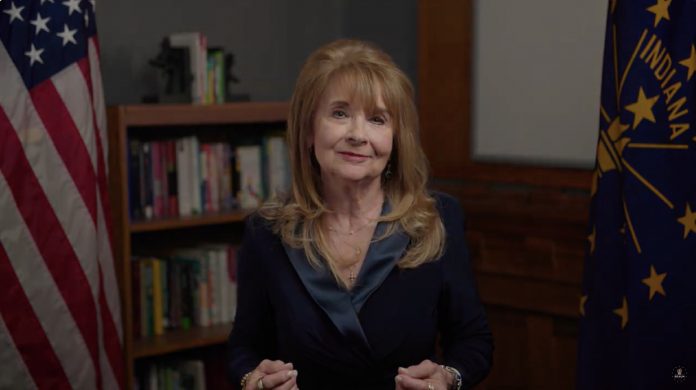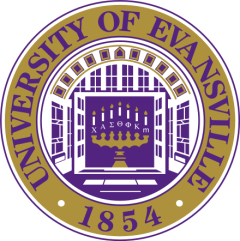VINCENNES, Ind. – Vincennes University (VU) Director of Athletics John Meeks announced Thursday that Nyla Johnson has been named the Lady Trailblazers’ 6th all-time Head Women’s Basketball Coach.
“This is an exciting day for VU Athletics and Women’s Basketball! After a thorough national search featuring an outstanding pool of applicants, we are thrilled to welcome Coach Nyla Johnson to VU,” stated Meeks. “Coach Johnson brings an impressive blend of energy, experience, and excellence, displayed across multiple levels of basketball. What stood out most during the hiring process was her vision for the program – not just for winning games, but for creating a program that is deeply connected to the community. She understands that inspiring young women goes beyond the court, and her passion for outreach, mentorship, and engagement aligns perfectly with our values at Vincennes University. Coach Johnson is the perfect leader to guide the Lady Trailblazers into the future.”
Johnson comes to VU after serving as an Assistant Coach at NCAA Division I Belmont University in Nashville, Tennessee during the 2024-25 season, where she helped guide the Bruins to a 26-13 overall record, including a 15-5 mark in Missouri Valley Conference (MVC) play, securing a third-place conference regular season finish. With a postseason invite in hand, Belmont advanced to the championship game of the inaugural Women’s Basketball Invitation Tournament (WBIT), marking the program’s deepest national postseason run in school history. During her time at Belmont, Johnson played a key role in the development of the team’s perimeter players and implementation of their defensive system. She also helped secure a nationally ranked mid-major recruiting class – focusing on high-character student-athletes who met Belmont’s rigorous academic and athletic standards.
“I am truly honored and deeply grateful to be entrusted with the opportunity to lead such a distinguished program,” said Johnson. “The holistic development of young women – both as athletes and people – has long been a driving force in my career, and I am excited to carry out that mission at Vincennes University. I extend my sincere appreciation to the VU administration for their confidence in my leadership, and I am committed to upholding the excellence and tradition that define our athletic department, our university, and our community.”
A native of Huntsville, Alabama, Johnson was a standout player at Madison Academy, where she earned All-State honors three times. As a senior in 2011, she led the team to a spectacular 36–3 record, culminating in an Alabama High School Athletic Association (AHSAA) Class 3A State Championship.
Johnson continued her playing career at Faulkner University in Montgomery, Alabama, where she was a four-year letter winner. As a freshman in 2012, she was named Southern States Athletic Conference (SSAC) Freshman of the Year. During her sophomore season, she helped lead the Lady Eagles to a regular season conference championship and a berth in the National Association of Intercollegiate Athletics (NAIA) National Tournament, where the team advanced to the second round. Faulkner finished the season with an impressive 26-7 overall record and a 15-3 mark in SSAC play. Johnson capped off her collegiate career by receiving the Champions of Character Award in 2015, while finishing in the top ten in school history in both points and rebounds.
Johnson’s coaching career began at Faulkner as a Student Assistant in 2015-16. She returned to her high school alma mater, Madison Academy, as an Assistant Coach for the 2016-17 season and played a key role in guiding the Lady Mustangs to the 2017 AHSAA Class 4A State Championship. The team captured its first-ever 4A girls’ basketball state title with a 50-47 victory over Deshler in the finals – handing Deshler its first and only loss of the season. Madison Academy finished the year with a remarkable 31-2 overall record.
From 2017 to 2020, she served on the staff at NCAA Division I Alabama A&M University in Normal, Alabama, as a Graduate Assistant and Assistant Coach. During the 2019-2020 season, the Bulldogs finished 17-13 overall and 12-6 in the Southwestern Athletic Conference (SWAC), finishing in fourth place, and solidifying their most successful season since 2011.
Johnson returned to Alabama A&M University for her second stint with the program, serving as Assistant Coach and Recruiting Coordinator in 2022-23. She quickly picked up where she left off, helping the Bulldogs finish second in the SWAC with a 12-6 conference record.
In May 2023, Johnson was appointed Head Coach of the women’s basketball program at Birmingham-Southern College, an NCAA Division III institution in Birmingham, Alabama, and was tasked with revitalizing the program. Unfortunately, Johnson’s tenure at Birmingham-Southern was short-lived as, less than ten months later, the college announced it would cease operations due to severe financial difficulties, bringing an end to more than 150 years of history as a highly respected liberal arts college.
The Lady Trailblazers program, which began play in the 1966–67 season, holds a significant place in Indiana basketball history as the first college in the state to offer women’s basketball athletic scholarships in 1973. The program was also the first women’s team in Indiana to win 20 games in a single season, finishing 26-2 that same year. With 32 NJCAA All-Americans and an NJCAA Hall of Famer, the Lady Trailblazers continue to be a symbol of excellence and tradition in women’s collegiate athletics.











